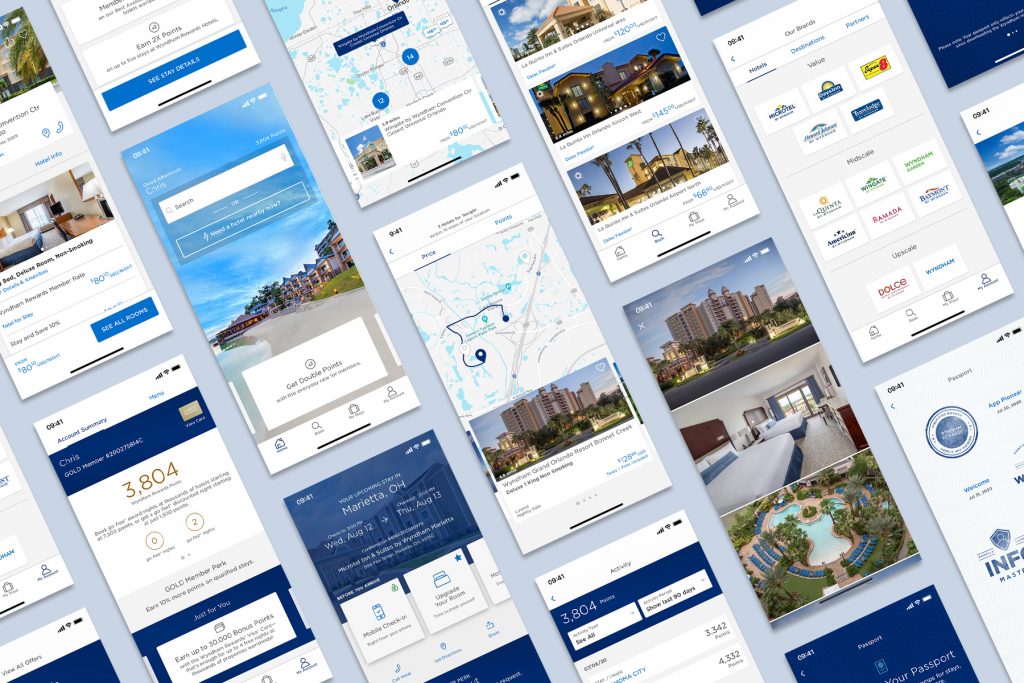Wyndham Hotels' Routine Mobile App Turns Out to Be Not So Routine

Skift Take
Based on the major upgrades to Wyndham’s mobile app, drive-to travel and contactless hotel experiences are here to stay.
Wyndham’s mobile app overhaul — launched this week at Skift Global Forum — includes mobile check-in and check-out, digital room key technology, and a three-tap “Lightning Book” reservation feature designed for drive-to travel. Lightning Book shows mobile app users the nearest Wyndham-branded hotels and allows them to quickly book via loyalty points or connected credit card while en route.
While Wyndham’s upgrade may seem in line with with what most major branded hotel apps offer, the company claims its tech evolution is significant due to its reach to more economy and midscale hotels.
“Features like mobile check-in and check-out may not be new to hotel apps, but it will be new at this scale,” Lisa Checchio, chief marketing officer at Wyndham, said Wednesday at Skift Global Forum. “Wyndham is going to be able to bring functionality to the everyday traveler that hasn’t existed before.”
Wyndham’s app update is a significant boost to its economy and extended-stay brands like Hawthorn Suites and Days Inn, where travelers may not expect to find the same contactless tech features of a full-service Hilton or Marriott.
Mobile check-in and check-out features are immediately available at nearly 300 of Wyndham’s U.S. hotels and will expand to all of the company’s roughly 6,000 domestic hotels by the end of the year.
The app also adds a level of personalization through account management settings that lets Wyndham know more about users like what kind of room they prefer. Exact room selection features are expected in the coming year at Wyndham properties that decide to opt-in, a company spokesperson told Skift.
Wyndham views the app upgrade as the culmination of a digital transformation initiative that began in 2016, but the contactless features arrive at a pivotal time when more travelers are preferring drive-to destinations in light of the pandemic. Nearly 90 percent of Wyndham’s hotels are in drive-to destinations.
Hotel guests also increasingly expect contactless elements to their stay. Contactless check-in, mobile payments, and digital messaging over contact with staff are all important elements in making travelers feel comfortable with a hotel stay during the pandemic, according to a recent Skift and Oracle Hospitality survey.
“Regardless of price point, this changing traveler in a Covid and post-Covid world are still looking for that functionality,” Chechhio said.
But how groundbreaking is the app? Hilton and Marriott’s apps offer similar contactless features, which extend to their own extended-stay and midscale brands.
Hilton is even beta testing its Connected Room initiative at 109 U.S. hotels, where guests can control room features like the television remote or temperature settings via the Hilton Honors app.
“I don’t want to say [Wyndham is] playing catch-up,” said Richie Karaburun, a professor at New York University’s Jonathan M. Tisch Center of Hospitality. “They’re on time because this is what the consumer wants right now.”
But while Wyndham’s app may be in line with some existing hotel tech, Karaburun recognizes it is still significant to see such technology arrive to economy brands.
“That’s their differentiation. They have a point on that,” he said. “Hilton doesn’t have very many economy brands like Days Inn or Howard Johnson like Wyndham has. If they offer this for every single brand, my hat’s off to them.”




